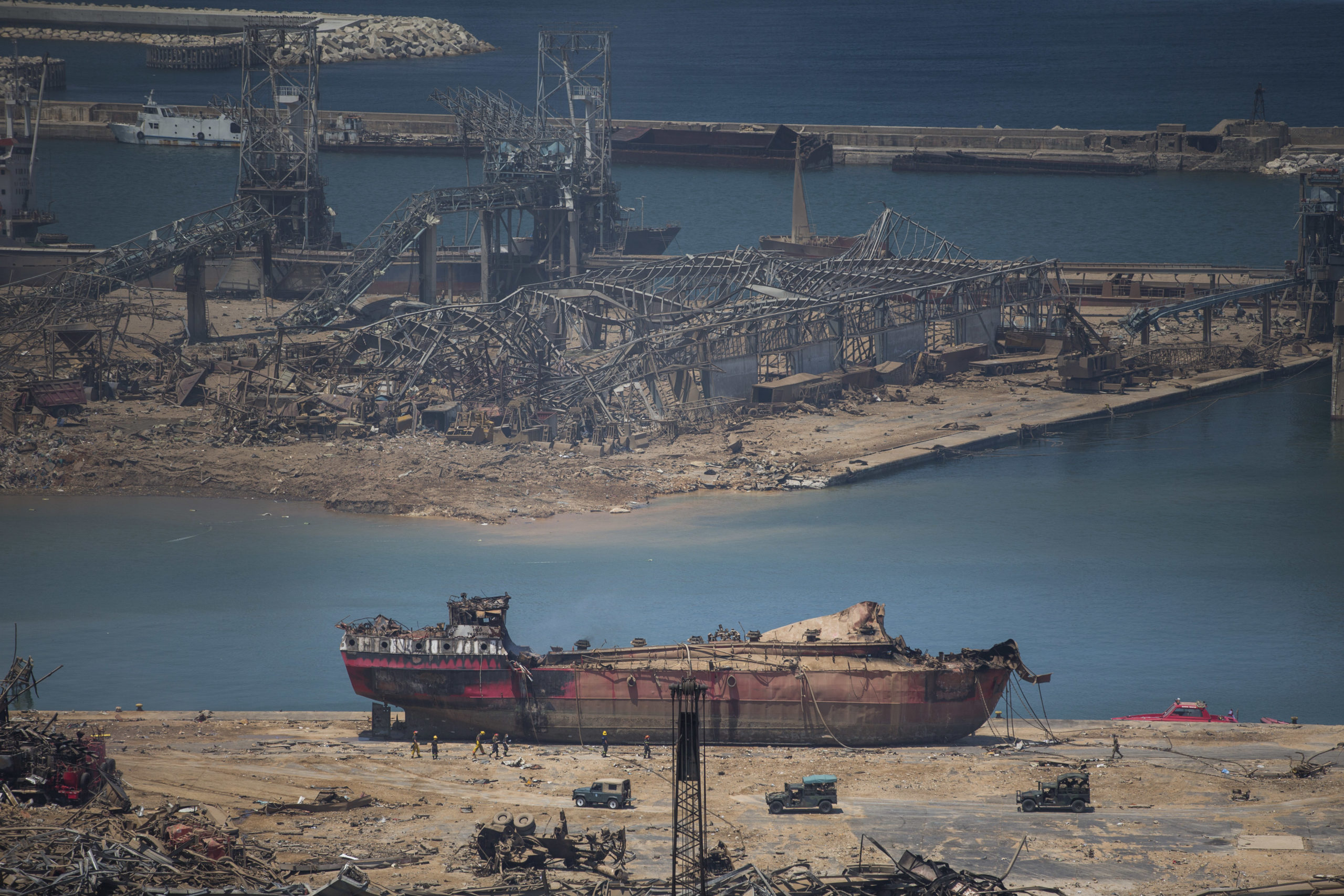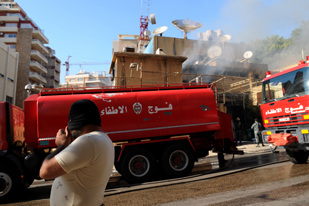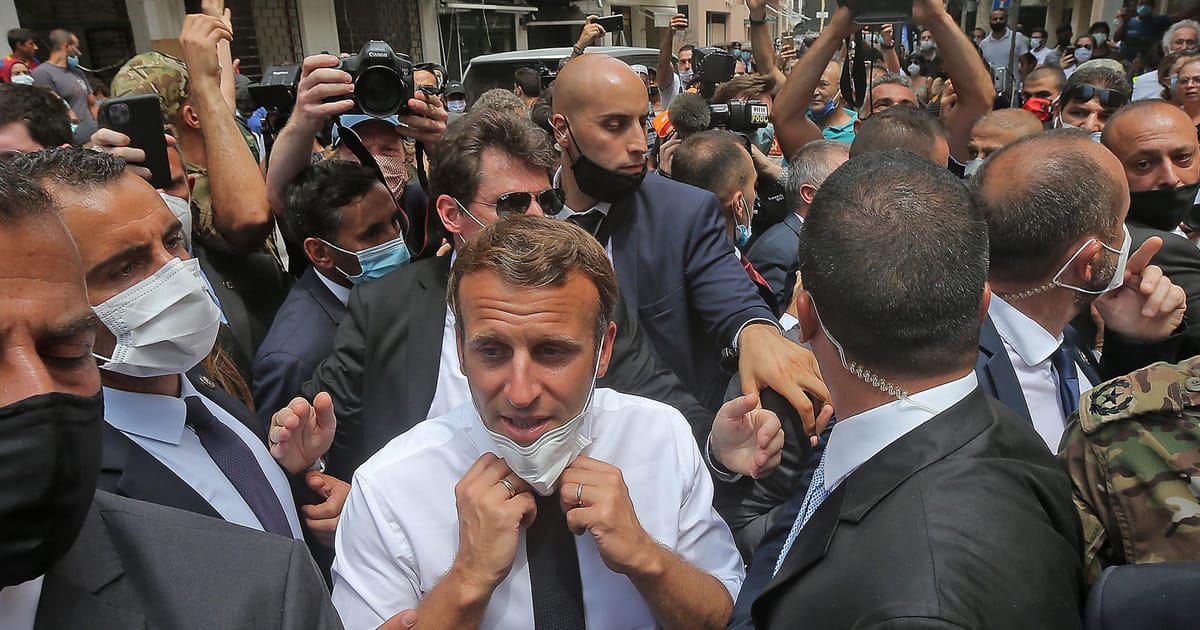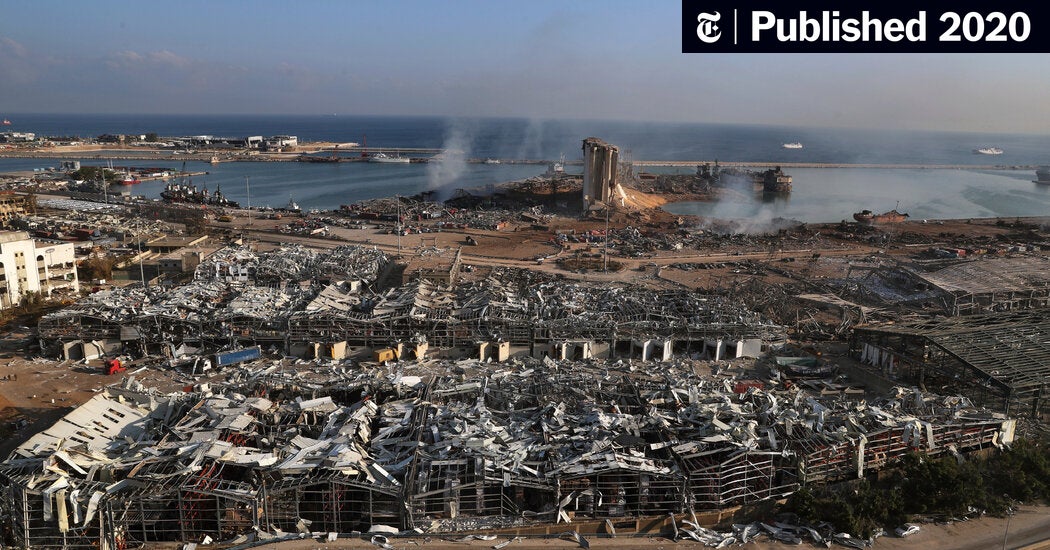Ammoniumnitraatin (tyyppiä lannoite/räjähde) käyttö on kielletty Libanonissa. Laivan kapteeni kieltäytyi lisälastin otosta Beirutissa, koska laiva ei olisi rakenteellisesti kestänyt sitä.
Two Georgian government officials, who requested anonymity because they were not authorized to speak to the media, said that following news reports of the blast they checked and confirmed that it was manufactured in Georgia and 2,700 tons of fertilizer were legally shipped from the country’s Black Sea port in Batumi. “It was a registered, clean sale and there was no reason for us to be suspicious,” one of the officials said.
The ammonium nitrate loaded in the Batumi port was destined for Mozambique. The vessel, called MV Rhosus, sailed under a Moldovan flag and was owned by a Cyprus-based Russian businessman named Igor Grechushkin. The crew were Ukranian and Russian nationals.
Captain Boris Prokoshev joined the crew when the ship docked in Turkey. In an interview with Russian media, he said he was told that the ship was headed to Mozambique but that during their refuelling stop in Greece, the owner, Igor Grechushkin ordered him to sail to Beirut to load it up with additional cargo.
Ammonium nitrate, which is a dual-use fertilizer, is banned in Lebanon. “I have no idea how Grechushkin got permission for us to dock in Beirut,” Prokoshev said in the interview with the Russian publication MediaZona, adding that in Beirut the crew was told to load up the ship with heavy machinery. The captain refused to receive the machinery on board because the ship “could not physically take so much.” By then, he said, the crew had grown increasingly angry with Greshuchkin over his failure to pay their salaries, and a partial strike ensued. The Lebanese authorities confiscated the ship for failing to pay port dues and taxes, and Prokoshev and his crew spent the following 11 months trying to get out of Lebanon.
“They should have gotten rid of the vessel right away instead of confiscating it and demanding fees for harboring it,” Prokoshev told RFE/RL.
Lebanon is one of a handful of countries that has outlawed dual-use fertilizers. According to leaked court documents, Lebanese customs authorities between 2014 and 2017 repeatedly asked Lebanese courts to allow them to re-export the banned chemicals which “posed a grave danger to public health.”
Lebanese authorities are still investigating the cause of the fire that led to the massive explosion.

 www.codastory.com
www.codastory.com
Two Georgian government officials, who requested anonymity because they were not authorized to speak to the media, said that following news reports of the blast they checked and confirmed that it was manufactured in Georgia and 2,700 tons of fertilizer were legally shipped from the country’s Black Sea port in Batumi. “It was a registered, clean sale and there was no reason for us to be suspicious,” one of the officials said.
The ammonium nitrate loaded in the Batumi port was destined for Mozambique. The vessel, called MV Rhosus, sailed under a Moldovan flag and was owned by a Cyprus-based Russian businessman named Igor Grechushkin. The crew were Ukranian and Russian nationals.
Captain Boris Prokoshev joined the crew when the ship docked in Turkey. In an interview with Russian media, he said he was told that the ship was headed to Mozambique but that during their refuelling stop in Greece, the owner, Igor Grechushkin ordered him to sail to Beirut to load it up with additional cargo.
Ammonium nitrate, which is a dual-use fertilizer, is banned in Lebanon. “I have no idea how Grechushkin got permission for us to dock in Beirut,” Prokoshev said in the interview with the Russian publication MediaZona, adding that in Beirut the crew was told to load up the ship with heavy machinery. The captain refused to receive the machinery on board because the ship “could not physically take so much.” By then, he said, the crew had grown increasingly angry with Greshuchkin over his failure to pay their salaries, and a partial strike ensued. The Lebanese authorities confiscated the ship for failing to pay port dues and taxes, and Prokoshev and his crew spent the following 11 months trying to get out of Lebanon.
“They should have gotten rid of the vessel right away instead of confiscating it and demanding fees for harboring it,” Prokoshev told RFE/RL.
Lebanon is one of a handful of countries that has outlawed dual-use fertilizers. According to leaked court documents, Lebanese customs authorities between 2014 and 2017 repeatedly asked Lebanese courts to allow them to re-export the banned chemicals which “posed a grave danger to public health.”
Lebanese authorities are still investigating the cause of the fire that led to the massive explosion.

Ammonium nitrate that devastated Beirut was manufactured in Georgia, officials confirmed - Coda Story
Conspiracy theories and disinformation campaigns are poised to focus on targets outside of Lebanon
 www.codastory.com
www.codastory.com
Viimeksi muokattu:








